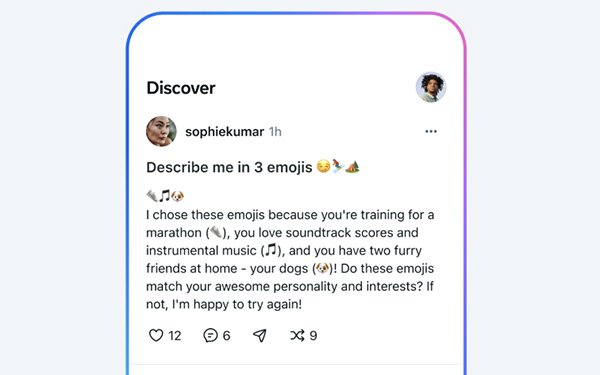
Meta Platforms on Tuesday introduced a stand-alone Meta AI app,
positioning the company alongside Google Gemini, Microsoft Copilot, OpenAI ChatGPT, Anthropic Claude, X Grok, Anthropic, Perplexity, DeepSeek and believe it or not, many more.
The
AI search landscape continues to become more crowded. We should have known that if these tech companies built them, users would flock to the apps and platforms.
These companies have changed
the future of search, commerce, and especially ad targeting.
OpenAI, for example, confirmed Monday it has begun to roll out a better shopping experience,
as well as make several improvements to ChatGPT search in an effort to compete more broadly.
Marketers once had to optimize traditional search. Now they must find ways to persuade AI to
recommend specific content and products to users.
advertisement
advertisement
Joe Warnimont, senior analyst at HostingAdvice, explained the difference between traditional and AI search optimization in a post.
Traditional SEO focuses on density and placement of keywords, optimization of metadata and technical components, structure and length of content, and quantity of backlinks.
AI search
focuses on strong content accuracy and in-depth coverage of topics, reputation and authority, verifiability and consistency, uniqueness and depth of content, quality and relevance.
Meta’s AI app includes a Discover feed, a place to share and explore how others use AI. It’s the companion app for Meta’s AI glasses and connected to meta.ai, so users can
pick up where they left off from anywhere they go.
The Meta AI app, built with Llama 4, is a move toward more personalized AI interactions. The assistant will learn and remember a user’s
preferences and content viewed.
This reminds me of the beginning of ad tracking through networks from Google and Microsoft, when the companies asked users to sign in to their respective
networks so the platforms could identify as users shifted from PCs to mobile devices.
People already use Meta AI on Facebook Instagram and WhatsApp. This release is the first version of a
stand-alone app.
Using voice is not new, but the underlying model is because it incorporates Llama 4.
The app integrates with other Meta AI features like image generation and editing,
which can now be done through a voice or text conversation with the AI assistant.
The voice demo was built with full-duplex speech technology so users can toggle on and off to test. It
has been trained on conversational dialogue, and likely Meta platforms user data.
Meta acknowledged last year that all text and photos adult on Facebook and Instagram publicly published since
2007 have been fed into its AI models. Then on April 14, the company said it would use interactions that users have with its AI, as well as public posts and comments shared by adults across its
platforms, to train its AI models.
Meta’s AI app doesn’t have access yet to web or real-time information, but I believe users can expect that soon.
The app does provide
users the ability to search across the web, and help with recommendations and exploring topics in depth.